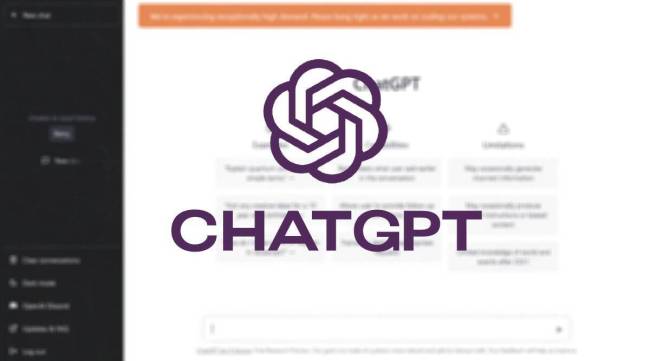Opinion A teacher writes: Challenges posed by ChatGPT are an opportunity to initiate long-overdue educational reforms
It is a chance to turn around an education system that looks at students as passive recipients of curriculum to one that challenges their creativity and makes them co-creators of an evolving knowledge economy
 Chat GPT, developed by a San Francisco-based company, OpenAI, marks a significant AI advancement. (File)
Chat GPT, developed by a San Francisco-based company, OpenAI, marks a significant AI advancement. (File) Written by Arun Kumar
I was a history student at the University of Delhi in the late 2000s. At college, we still submitted hand-written essays though the trend tipped towards typed essays at the North Campus. I wrote assignments on the causes of the First World War and the decline of the Indus Valley Civilisation. To write these essays, we spent days in the library going through hundreds of pages. Of course, there were always friends who repackaged an old assignment from another college or an old class, which, due to the unavailability of software like Turnitin, passed the plagiarism radar.
In 2023, the challenges to our education system are greater. Educators across the world have raised suspicion that the new Artificial Intelligence (AI) tool, Chat GPT, would further enable cheating and plagiarism in assessed assignments and school homework. An education system recovering from the COVID-19-induced online mode of learning is again being tested by the IT-led world
Chat GPT, developed by a San Francisco-based company, OpenAI, marks a significant AI advancement. It is an AI tool that allows the exchange of information in a conversational format. So, you ask questions on the platform, and the ChatGPT bot will provide you with an answer. Let’s say you are unhappy with the response. The bot can ask for additional information, and it might come up with an improvised answer. You could also tweak your questions and problems, and the bot will come up with improvised solutions. ChatGPT corrects itself, learns from conversations, and comes up with more precise responses. Various forms of written assignments and presentations that educational institutions rely on to test students’ skills and acquired knowledge are readily available through ChatGPT. Trials done in the UK confirm ChatGPT’s ability to produce more than a passing essay in half an hour. This has the potential to bring conventional forms of assessments under greater scrutiny.
There are various solutions to get around the potential ways ChatGPT may be misused, such as a Chat GPT-specific plagiarism-detector software. However, take-home assignments always rely on the honesty of students. In the global education market, various platforms exist that anyway help students in writing their graded assignments who, in return for money, read students’ modules and readings and write the desired answers for them. Unlike copy-paste assignments, which are detectable through Turnitin, these bogus essays are impossible to detect if the classes are large.
The way ahead is to change the conventional forms of assessments and introduce varied methods to test students’ creativity and knowledge and instil skills. It is an opportunity for our education system to make students not passive recipients of the curriculum but co-creators of an evolving knowledge economy.
While in-person exams are the ultimate proof against any assisted student coursework, exams can only test students in certain areas: Memorisation, written skills, time management, and knowledge attainment. However, a 100 per cent examination-based assessment format raises concerns about an equitable education system. Not all students can be good with handwriting, memorisation and controlled exam hall written exercises. Within social sciences and humanities, one way of moving forward is to make assessed oral presentations, and primary source extract analysis, with compulsory referencing and footnoting, a part of the essential curriculum design. Educational institutions will also have to invest in sophisticated online submission software and plagiarism tools that can detect bot-assisted assignments. These should be implemented early in education, including in senior secondary schools and undergraduate degrees.
Primary source extract analysis can be a way to deal with any form of assisted assignment. Thus, a political science course could ask the student to analyse a specific portion of a bilateral treaty and a political speech and explain its relevance in the wider world and scholarship. Early exposure to primary source data could also motivate students to be more engaged as it might give them the sense that they are co-creators of knowledge. To enable this, the inclusion of a selected group of primary sources in the course will be a prerequisite.
Oral presentations will enhance and test students’ communication skills, time management, and information-organisation abilities. These would also push students to be more creative and engaged in the learning outcomes of the courses. Here, assisted presentation is a danger, but at least students would learn to translate their written knowledge into oral formats. But with a proper emphasis on healthy practices, such as referencing and bibliography, the evils of assisted assignments could be dealt with. Introducing such a scheme in countries like India with a large student body becomes even more necessary. It is important to train future generations in ways that instil in them hard/honest work, precise knowledge, critical, analytical, and communication skills, and other employable and life skills.
The writer is an assistant professor of British Imperial, Colonial, and Post-colonial History at Nottingham University




